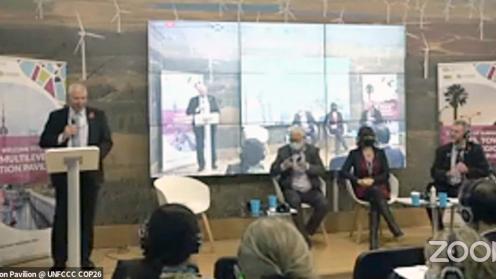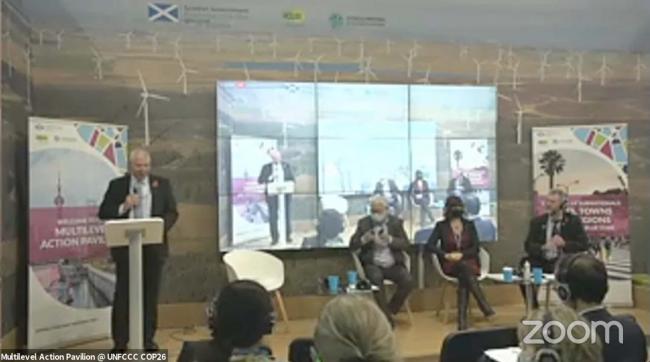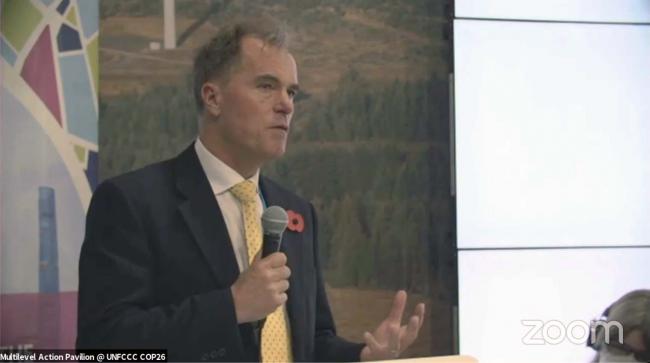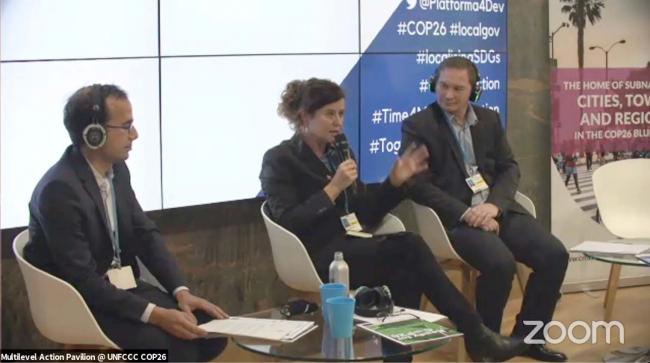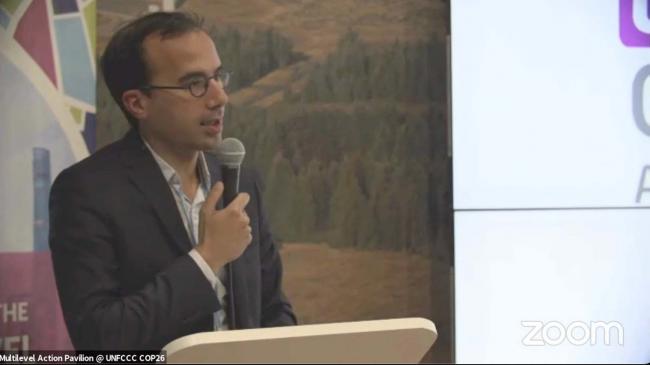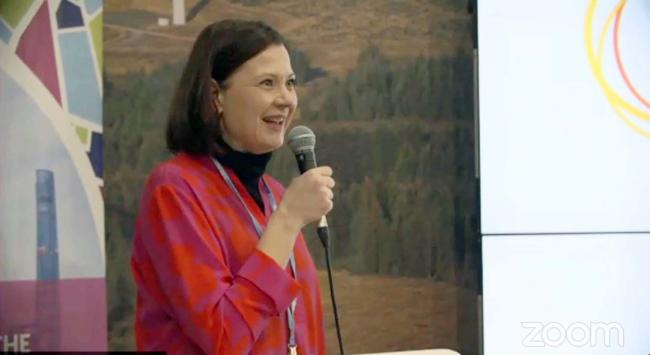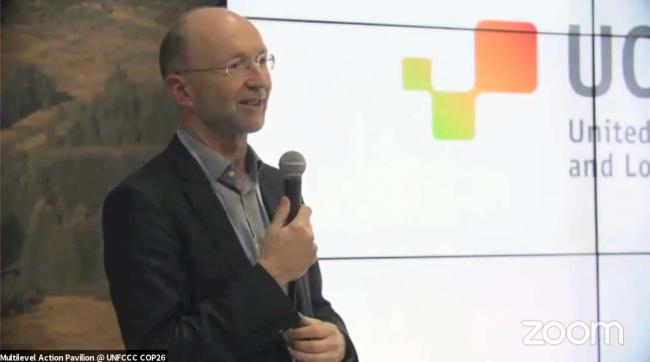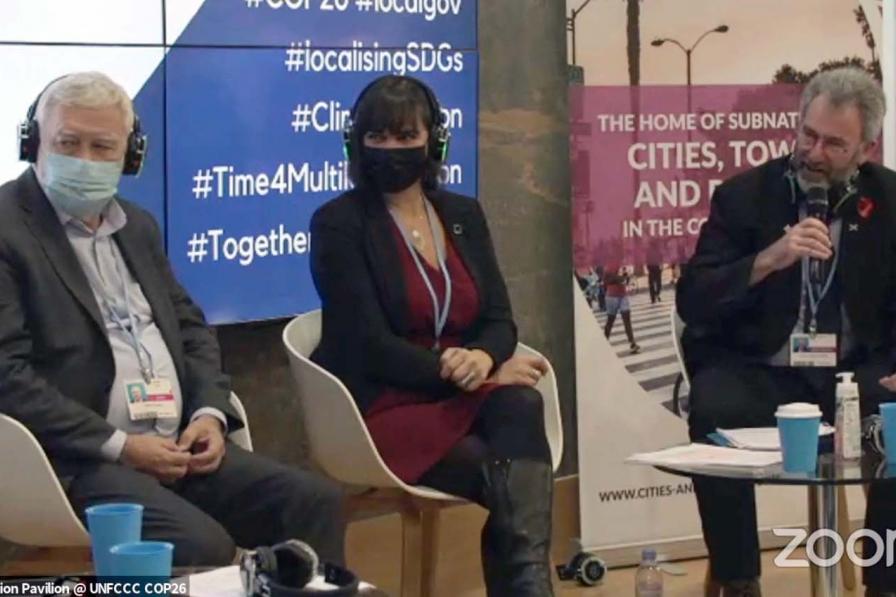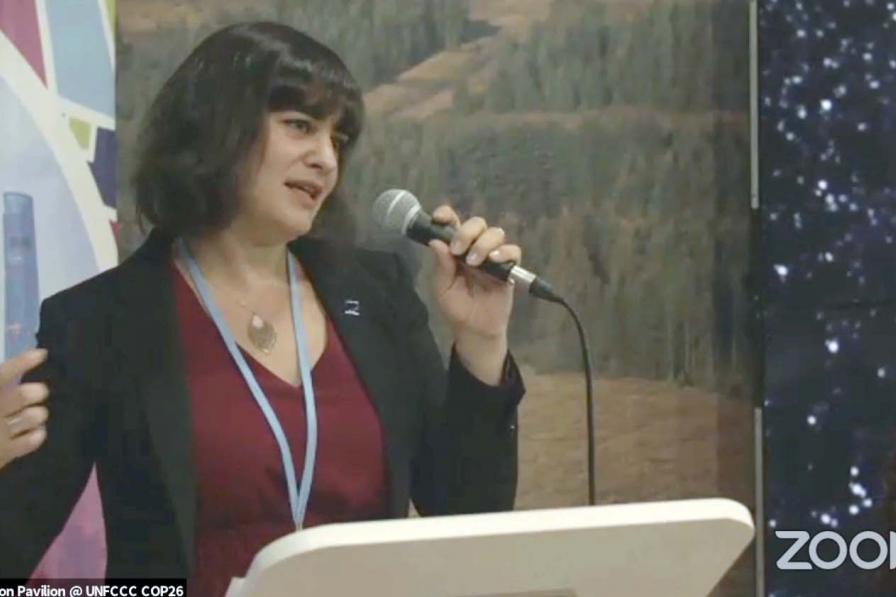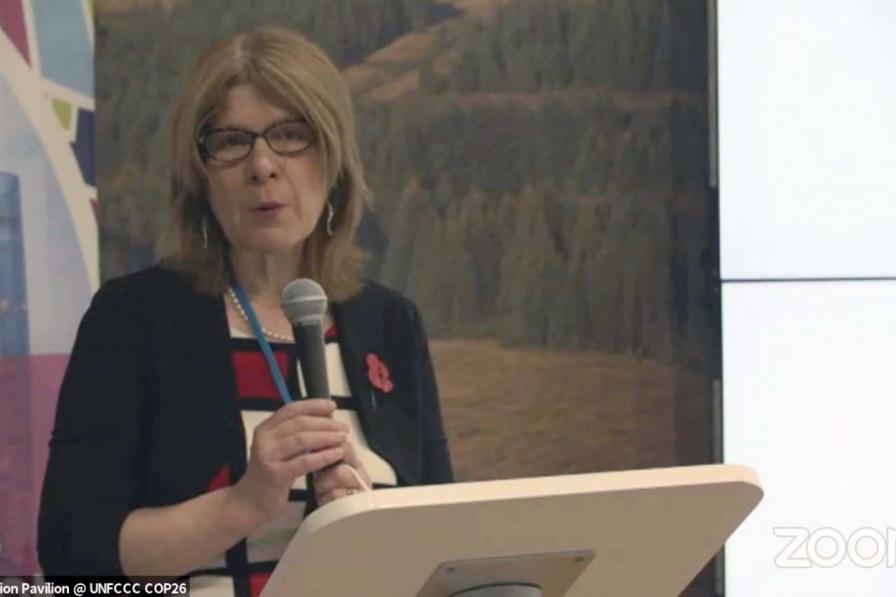Local Government and Municipal Authorities COP26 Multilevel Partnership
Local and regional governments and municipal authorities have a key role to play in the design and implementation of policies and actions against climate change, and the delivery of national net zero emission plans. While this role is increasingly recognized, further steps need to be taken for these authorities to continue playing their invaluable role in delivering climate solutions. This policy dialogue brought together senior local elected members from all over the world exchanging opinions on the initiatives of local and regional governments, and the challenges they face.
Main messages from the session included:
- the vast majority of actions to address climate change need to be taken forward at the local level and all spheres of government must be recognized;
- reaching climate change targets is impossible without mobilizing regional and local governments and authorities; and
- an impressive array of activities are already taking place at the local level, and need to be sustainably financed and scaled up.
The event was organized by the Convention of Scottish Local Authorities (COSLA) and the Local Government Associations in England, Wales, and Northern Ireland, the Council of European Municipalities and Regions (CEMR), and United Cities and Local Governments (UCLG), together with ICLEI – Local Governments for Sustainability and UN-Habitat.
Michael Matheson, Cabinet Secretary for Net Zero, Energy and Transport, Scottish Government, stressed that during this crucial decade for climate action, “the vast majority of actions and decision making need to be taken forward at the local level.” He called for ensuring recognition of the roles of all spheres of government and stressed the importance of empowering people to achieve a just and fair transition.
Alison Evison, President, COSLA, underscored the need to recognize local governments as “more than just a stakeholder in the climate negotiations,” emphasizing they are an essential mechanism to deliver on climate ambition. She urged for a strong reference to subnational and local governments in the official COP 26 concluding document, signaling their key role and increasing their visibility.
James Jamieson, Chairman, Local Government Association (LGA) for England and Wales, underscored the importance of sharing case studies and best practices on climate change actions, pointing to a relevant local web-based initiative. He emphasized that the only way to get to zero emissions quickly is to take into account the role of subnational governments, calling for their full recognition in the final COP 26 outcome.
Robert Burgess, President, Northern Ireland Local Government Association (NILGA), introduced a video on NILGA’s sustainability activities. The video presentation showcased work of Northern Ireland Councils towards, among others: peatland restoration; the development of climate action toolkits, and climate action networks and plans; hydrogen-powered ferries; herbicide reduction; green public transport networks; habitat protection, including for pollinators; biodiversity conservation; and green tourism.
Local and Regional Leaders: Setting the Context
Steven Heddle, COSLA and CEMR Spokesperson, moderated a first panel discussion focusing on local and regional leaders, including the main obstacles that local and subnational governments face. Ronan Dantec, Senator, France, stressed that reaching the 2030 targets is impossible without mobilizing local governments, adding that new financial tools are needed for their effective engagement.
Kata Tüttő, Deputy Mayor of Budapest, Hungary, and Member of the European Committee of the Regions, stressed the need to make citizens central in the sustainability discussion and emphasized that solutions can be found at the local level. Elise Pereira Nunes, Vice Mayor of Tours, France, focused on the need to achieve gender equality, stressing that climate change is not gender neutral. She called for directly involving women and girls in negotiations and decision making, as they are actors of change, and underscored building trust as a prerequisite for local action.
North-South Global Dialogue: City-to-City Cooperation
Claire Holland, Leader of Lambeth Council, London, UK, moderated a second panel discussion focusing on city-to-city cooperation, including between the Global North and South. She highlighted Lamberth Council’s work on the climate emergency, stressing the need for cooperation as well as the necessity of tackling inequality, noting that the poorest will be hit the hardest and disproportionately by climate change.
Dan Lert, Deputy Mayor on Ecological Transition, Climate Change, Energy, and Water, Paris, France, highlighted adaptation and mitigation efforts in Paris, including on the energy transition. He stressed that a just and inclusive transition requires a bottom-up, collaborative effort, leaving no one behind. He further drew attention to cooperation with other cities, including Barcelona, Buenos Aires, Bogota, and Mexico City.
Francisco Resnicoff, Deputy Mayor of Buenos Aires for International and Institutional Relations, Argentina, underscored that recognizing the role of local governments is key both for democracy and climate action. He highlighted relevant actions in Buenos Aires, including green public spaces, improving public transport, creating an extensive network of bicycle lanes, and developing a climate change platform with all relevant information for the city. He stressed that attracting the necessary resources is key for cities, especially in the Global South, to fulfil their role as agents of change.
The Way Forward
In concluding remarks on the way forward, Minna Arve, Mayor of Turku, Finland, reported on main messages from a meeting with the UN Secretary-General in her capacity as ICLEI Vice President. She noted the role of cities should be strengthened; said they should be more involved in preparing for future COPs, starting with COP 27 in Egypt in 2022; and discussed a framework for cooperation, including between city networks.
Matthew Baldwin, Deputy Director-General, Directorate-General for Transport and Mobility, European Commission, said he will be leaving COP 26 overwhelmed by the determination of cities to be part of the solution. He stressed “there is no way to win the fight against climate change without cities,” quoting the Mayor of Prague, who said that “the 21st century has the chance of being the era of cities.”
Contact
Adel Strydom | adel.strydom@iclei.org<
Ariel Dekovic | ariel.dekovic@iclei.org
Serafin Pazos-Vidal | serafin@cosla.gov.uk
More Information
To receive free coverage of global environmental events delivered to your inbox, subscribe to the ENB Update newsletter.
